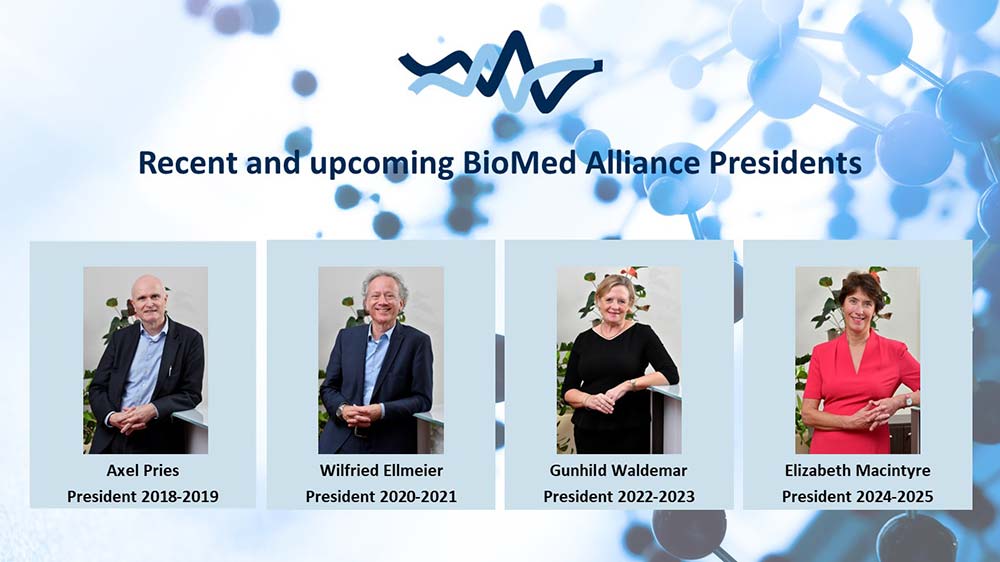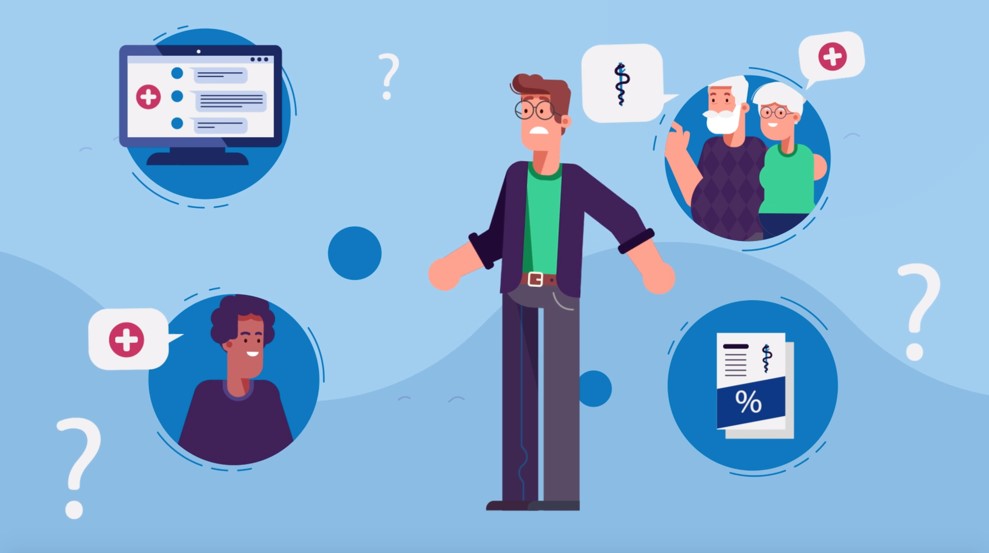News - 2022
Update February 2022
- Details
Read our February Update to get more information on our activities and the latest news at EU level. In this edition you can find more information on our statement on the war in Ukraine, our upcoming Spring Meeting & Workshop on Health Research, our new article on CME, a consultation on EU Health Data, our efforts on IVDR, and members news. Read more here.
BioMed Alliance calls for support for the population affected by the war in Ukraine
- Details

The BioMed Alliance has followed developments around the Russian army's invasion of Ukraine with great concern. We believe that the health and wellbeing of citizens must come first: lives must be protected, and citizens must continue to be able to access essential services and get the care that they need.
It is time for the European Union and the international community to stand in solidarity with the population affected by this war, and to provide support and protection to those in need of help.
In time of crisis, humanitarian health assistance, collaboration and mutual aid must prevail and the biomedical health research community can contribute and support the work of international organisations like the International Committee of the Red Cross, United Nations High Commissioner of Refugees and the World Health Organisation. Support is needed on all fronts, for example by providing funds to recognised humanitarian organisations or even by participating in the Emergency Medical Teams being deployed by WHO in the area.
We are glad to see that our members are already providing support to medical societies and clinicians in the conflict area, and additional support from the international community and relief organisations is necessary to allow healthcare professionals to provide the best care to the victims of this conflict.
The principles of international, humanitarian and human rights law need to be upheld, and we call for a swift and peaceful resolution to the conflict.
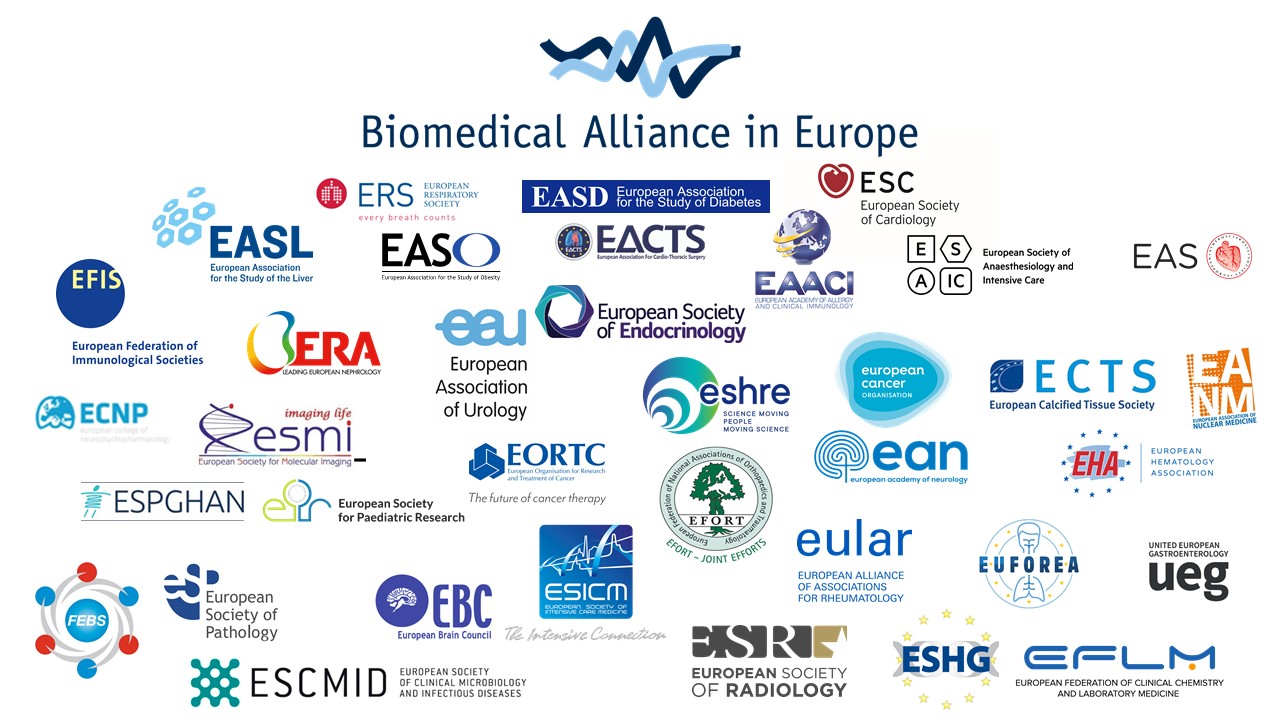
Article: Continuing Medical Education in time of crisis
- Details
The BioMed Alliance has published an article in the Journal of European CME entitled ‘Continuing Medical Education (CME) in time of crisis: How medical societies face challenges and adapt to provide unbiased CME’. The article is based on the results of two surveys on this topic conducted by the CME Experts Permanent Committee in 2019 and 2021 and evaluates the CME landscape, how medical societies develop and assess CME and how they interact with other stakeholders. It also reflects on the consequences of the COVID-19 Pandemic for the provision of CME and the challenges that are ahead. Read the article here.
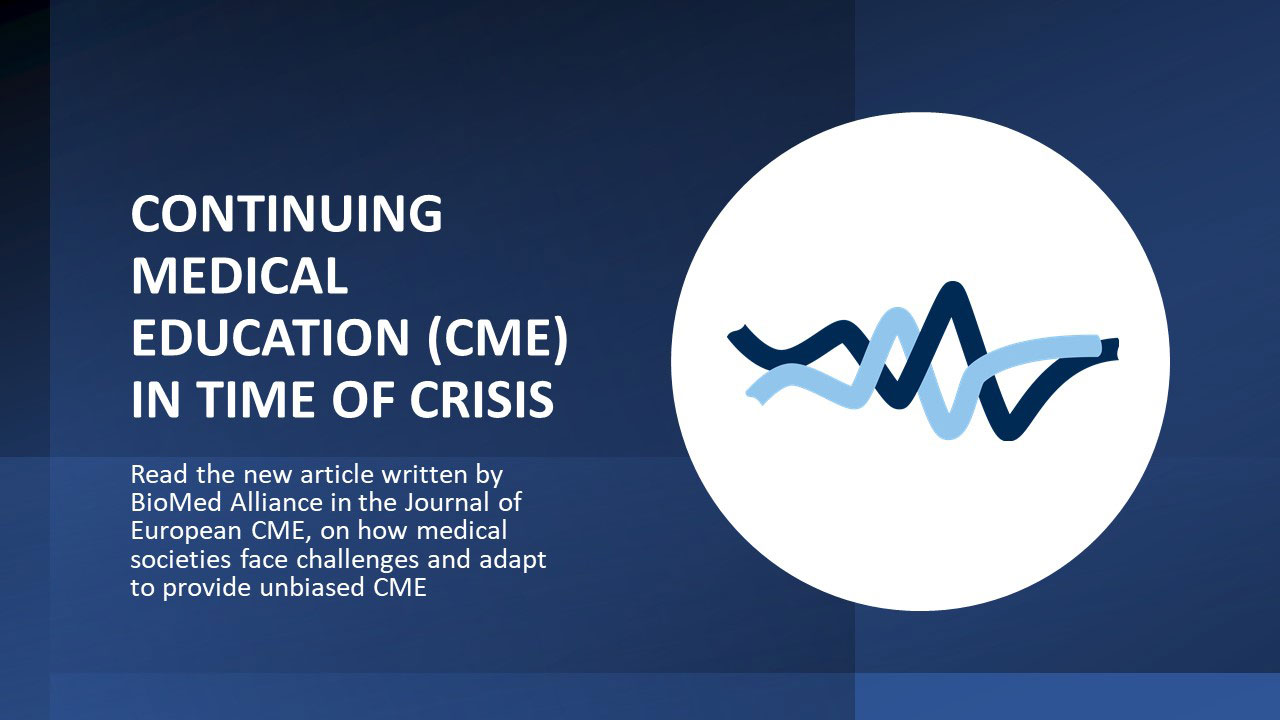
Update January 2022
- Details
Take a look at our January Update to get an overview of BioMed Alliance activities and the latest news on EU health & research policy. This month you can read about the dates of our Spring Meeting & General Assembly, our statement on the EHDS, a special message from Past-President Axel Pries, the European Commission call for experts in medical devices & IVDs, our updated Statutes & Code of Conduct, a survey on Quality Indicators, an update from our IVDR taskforce and information on new health research funding calls.
Thoughts of the outgoing Past President – Axel R Pries
- Details
Towards a European Health Union: Role of the BioMed Alliance
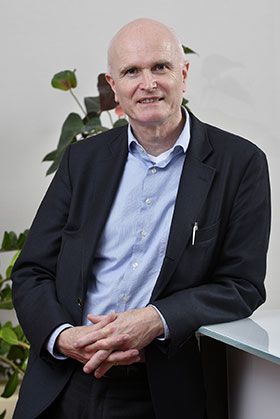
Dear Friends and Colleagues in the BioMed Alliance,
May be, you allow me to start with a provocative question: Why are you investing time and energy into the BioMed Alliance? There is no money in it, little glory and a lot of work!
I guess that for most of us there are two main reasons, which are closely linked: A very friendly and synergistic group drives the BioMed Alliance – and that is done on the basis of a common goal:
Improve health provision throughout Europe and for all medical disciplines based on excellent health research.
That leads us without any delay to the actual efforts to establish a European Health Union. The COVID-19 pandemic has clearly demonstrated that European coordination and cooperation in health and biomedical research are vital. It was obvious that Europe has a very large potential with respect to biomedical research, innovation, transfer and medical treatment.
But the crisis has also shed a spotlight on the fact that we have a substantial problem in coordination of our efforts and in the optimal use of our resources. This is true in science and research and in the medical field – and especially at the interface between both areas, the translation. Translation is exactly the domain of the member societies of the BioMed Alliance representing over 400.000 researchers, physicians and health professionals in Europe. It is the daily business of all these societies to learn from new scientific insights, to disseminate knowledge, to foster new medical developments and to look far ahead in science based education and planning. It is also clear to all members of these societies that the medical entities they address day in day out do not respect borders or national regulations. They know that medical problems tend to be hard to fight and that success requires sustained efforts, often over decades!
It is our task in Europe to generate optimal mechanisms to deal with the fundamental international nature of diseases, science and medical treatment options in the framework of the political and organizational structure of the EU. The diversity of backgrounds, approaches and concepts in Europe provides for a very rich environment of excellence and ideas. The increasing international standing of European science reflects this. However, this positive diversity should not lead to a fragmentation of resources. The inclusive democratic control processes of the EU should not prevent sustained and coordinated initiatives in research and translation.
The Framework and Horizon programmes of the EU are by far the most significant transnational funding schemes in Europe. They bring together scientists and researchers from all countries. Nevertheless, they usually do not support the sustained efforts needed to address the most severe questions in medical science. There is always the danger of a ‘flash in the pan’ instead of the continuous development towards real solutions for large problems.
In the current discussion triggered by the CoVid Pandemic the European ‘Health Emergency Response Authority’ (HERA) was established, and is in part addressing the weaknesses described above. HERA is certainly necessary to fight future health emergencies, but it is not sufficient to unleash Europe’s potential in the field of biomedical research, translation and treatment. Its focus is on ‘Health Emergencies’ that represent only a relatively small sector of the entire medical requirements.
The BioMed Alliance has long argued for the foundation of a broader coordinating body in Europe, tentatively named ‘European Council for Health’. The European Council for Health should bring together stakeholders from civil society, industry and politics under a scientific leadership and initiate and coordinate the entire translational spectrum reaching from basic research to innovative medical solutions in prevention, diagnosis and treatment.
The European Council for Health would be a central pillar for a European Health Union by making health research and health provision in Europe more equal and more effective. Let’s work together effectively for a European Health Union by taking the responsibility for Health for all. This is a good reason to invest time and energy into the BioMed Alliance.
With my best regards
Axel R Pries
The new Code of Conduct: BioMed Alliance updates ethical framework for medical societies
- Details
The BioMed Alliance has updated its Code of Conduct, which provides a unique set of ethical principles relevant to the work of medical and research societies. Over the past years the code has been widely used and referenced as a helpful tool for the Alliance and its members to help ensure professional independence, objectivity and scientific integrity.
The Code of Conduct has now been brought up to date by a special Working Group which created a new version adapted to the current situation and setting high ethic standards and principles for medical and research societies. It was approved during the 2021 General Assembly and will continue to guide the activities of the BioMed Alliance and its members in the future.
Apply now: Additional experts needed for European Commission EXPAMED Panels
- Details
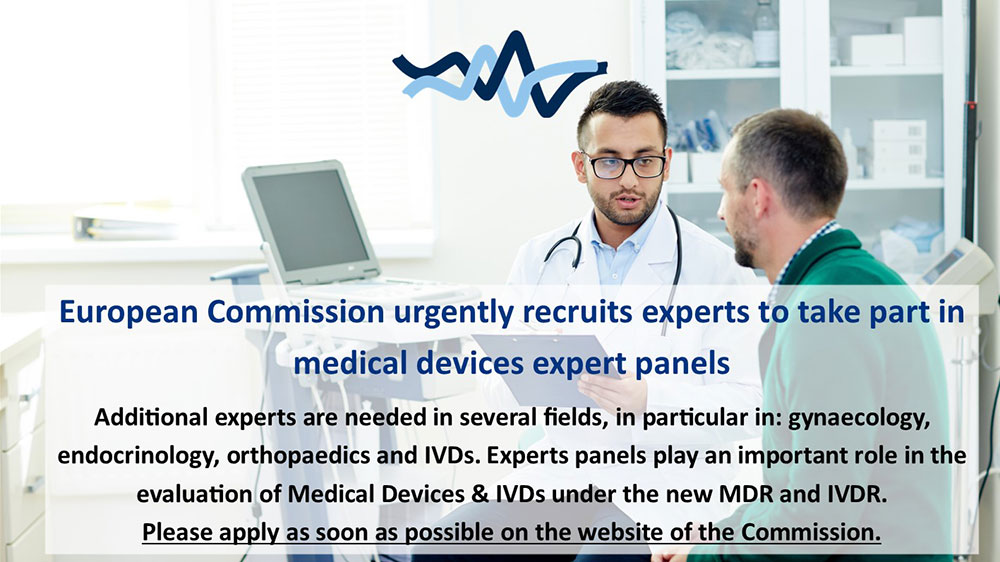
The European Commission has informed us that they are looking for additional candidates to be part of the Medical Devices Expert Panels (EXPAMED). The panels play a key role in evaluating high-risk devices and thus help to ensure the safety of medical devices and in vitro diagnostics in the EU.
The first call for experts was published in 2019, and since then the panels have started their work under the new Medical Devices Regulation and the In Vitro Diagnostics Regulation. Due to different circumstances and a large number of devices to evaluate, additional applications are welcomed in several fields and particularly in:
- Orthopaedics, traumatology, rehabilitation, rheumatology
- Endocrinology & Diabetes
- Obstetrics & Gynaecology, including reproductive medicine
- In vitro diagnostic medical devices
- Detection of arboviruses
- Detection of parasites
- Detection of haemorrhagic fever and other biosafety level 4 viruses
Interested candidates are asked to apply as soon as possible via the online application form, and you can find more information on the Commission website here or in the BioMed Alliance briefing here.
New leadership at BioMed Alliance
- Details
The year started well for BioMed Alliance, under the lead of its new President Prof. Gunhild Waldemar. Gunhild has been on the Board since 2017 and has been actively involved in many of our activities throughout the years. Her specialty is in neurology, and she is Professor of Clinical Neurology at Rigshospitalet, University of Copenhagen. In the coming two years she aims to help the BioMed Alliance to continue to grow, and to support its members in these turbulent times. Gunhild has taken over from Prof Wilfried Ellmeier, who has successfully been leading the BioMed Alliance over the past two years and will continue to advise as Past-President.
Prof. Elizabeth Macintyre was nominated to become the next President-Elect after Gunhild finishes her term. Elizabeth is currently President of the European Hematology Association and chairs our In Vitro Diagnostics Task Force. She has extensive experience in representing BioMed Alliance and will become President in January 2024.
Unfortunately, this also means that Prof. Axel Pries has finished his term as Past-President and will therefore leave our Board of Directors after many successful years. During his time as President-Elect, President and Past-President the BioMed Alliance grew significantly and expanded its activities. He has been a very motivated advocate for the BioMed Alliance, and he will be missed in the Board!
